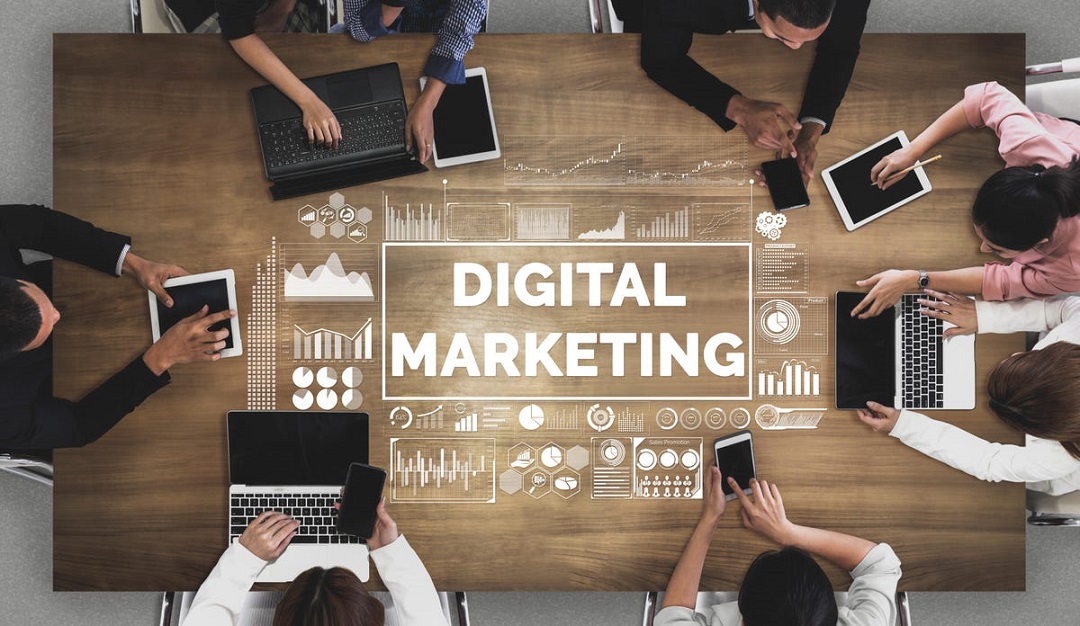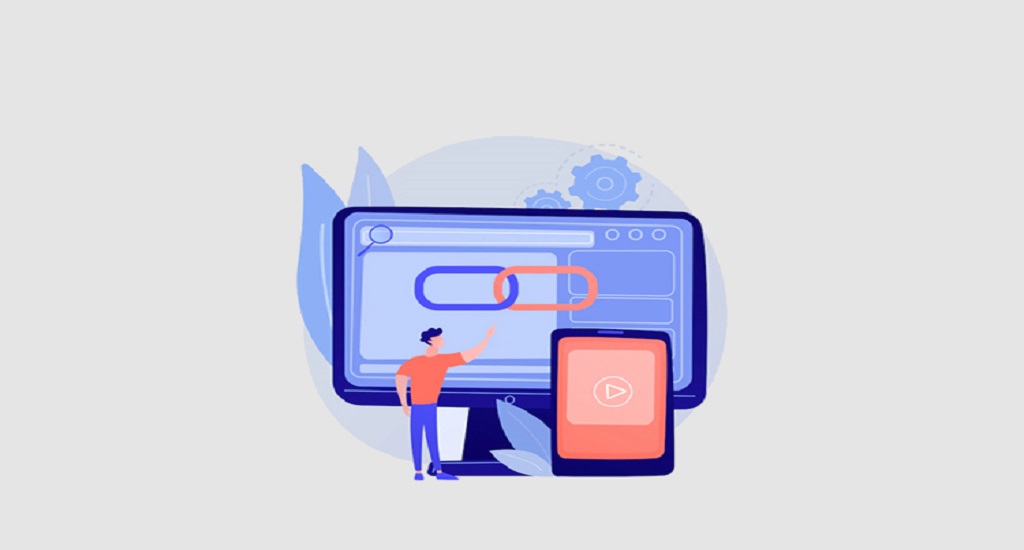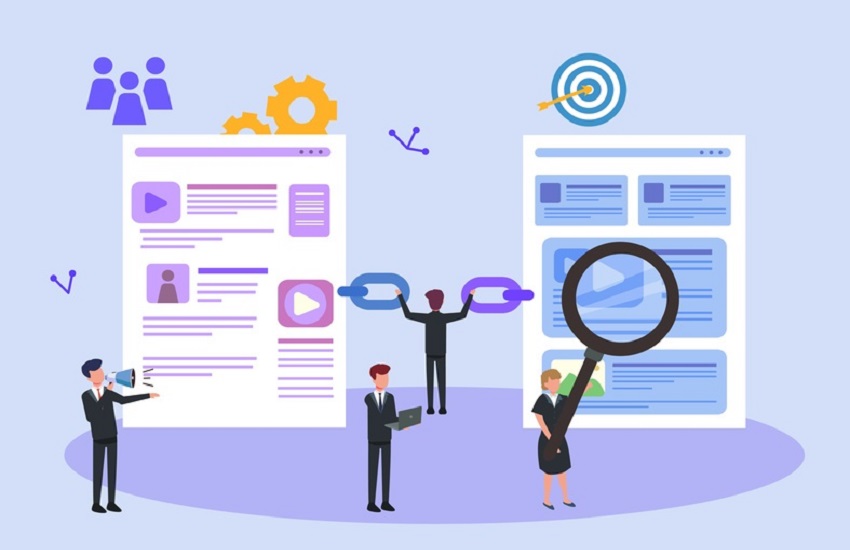
by Administrator | Apr 28, 2023 | Digital Marketing
Real estate is a competitive industry, and real estate companies need to do everything they can to stay ahead of the competition. One important strategy that can help real estate companies improve their online presence is link building.
What is Link Building?
Link building is the process of acquiring hyperlinks from other websites to your own. These hyperlinks are known as backlinks and are an important factor in determining the search engine rankings of a website. The more high-quality backlinks a website has, the higher it will rank in search engine results pages (SERPs).
Why is Link Building Important for Real Estate Companies?
- Improve Search Engine Rankings: As mentioned earlier, backlinks are an important factor in determining search engine rankings. By building high-quality backlinks, real estate companies can improve their search engine rankings, making it easier for potential customers to find them online.
- Drive Traffic to Your Website: Backlinks not only improve search engine rankings, but they can also drive traffic to your website. If a high-authority website links to your website, people who visit that website may click on the link and visit your website as well.
- Increase Brand Awareness: Link building can also increase brand awareness for real estate companies. When a website links to your website, it exposes your brand to a wider audience. This can help increase brand recognition and establish your company as a reputable authority in the industry.
- Build Relationships: Link building is also a great way to build relationships with other websites in the industry. By reaching out to other websites and offering to create valuable content for them in exchange for a backlink, you can establish a mutually beneficial relationship with other industry professionals.
How to Build Backlinks for Your Real Estate Company
- Guest Blogging: Guest blogging is a popular link-building strategy where you write a blog post for another website in exchange for a backlink. When guest blogging, make sure to choose websites that are relevant to your industry and have high domain authority.
- Infographics: Creating high-quality infographics can also be an effective link-building strategy. Infographics are visually appealing and shareable, making them a great way to generate backlinks.
- Local Directories: Listing your real estate company in local directories can also help you build backlinks. Make sure to choose directories that are relevant to your industry and location.
- Social Media: Sharing your content on social media can also help you generate backlinks. When people share your content, they create a backlink to your website.
Conclusion
Link building is an important strategy for real estate companies that want to improve their online presence. By building high-quality backlinks, real estate companies can improve their search engine rankings, drive traffic to their website, increase brand awareness, and build relationships with other industry professionals. If you’re a real estate company looking to improve your online presence, consider implementing a link-building strategy into your marketing plan.

by Administrator | Feb 17, 2023 | Digital Marketing
Link building is an essential part of any search engine optimization (SEO) strategy. By getting other websites to link back to your site, you can improve your search engine rankings and attract more traffic to your website. For SaaS companies, link building is especially important because it can help increase your brand awareness and drive more leads to your business.
In this article, we’ll explore some effective link building outreach strategies for SaaS companies that can help you improve your SEO and drive more traffic to your website.
Identify Your Target Audience
Identifying your target audience is the first step in any link-building outreach campaign. Who are the people you want to reach with your content, and what websites do they frequent? By understanding your target audience, you can create content that speaks directly to their needs and interests, and you can also identify websites that are likely to be interested in linking to your content.
Create High-Quality Content
To attract links from other websites, you need to create content that is high-quality, informative, and valuable. This could be in the form of blog posts, whitepapers, infographics, videos, or other types of content. Your content should be well-researched and offer something unique or new to your audience. By creating content that provides real value to your readers, you increase your chances of attracting links from other websites.
Find Link Building Opportunities
Once you have created high-quality content, it’s time to find link building opportunities. This can be done by using a variety of tools and techniques, including:
- Backlink Analysis: Analyze the backlinks of your competitors to identify potential link building opportunities. This can be done using tools like Ahrefs or SEMrush.
- Guest Blogging: Write guest blog posts for other websites in your industry. This can help you establish yourself as an expert in your field and get links back to your own website.
- Broken Link Building: Find broken links on other websites and offer to replace them with links to your own content.
- Skyscraper Technique: Create content that is better than existing content on a particular topic, and reach out to websites that have linked to the existing content to suggest they link to your new and improved version.
Reach Out to Websites
Once you have identified potential link building opportunities, it’s time to reach out to the websites in question. When reaching out, it’s important to be respectful and to provide value to the website owner. Some tips for effective outreach include:
- Personalization: Address the website owner by name and personalize your email or message to their specific needs and interests.
- Provide Value: Explain how your content can provide value to their readers and why it’s a good fit for their website.
- Follow Up: If you don’t hear back from the website owner, follow up with a friendly reminder.
Build Relationships
Link building outreach is not a one-time event. It’s important to build long-term relationships with other website owners in your industry. By establishing yourself as an expert in your field and providing valuable content to other websites, you can build relationships that can lead to future link building opportunities and other collaborations.
Conclusion
Link building outreach is an essential part of any SaaS company’s SEO strategy. By creating high-quality content and reaching out to other websites in your industry, you can attract valuable backlinks that can improve your search engine rankings and drive more traffic to your website. By following the strategies outlined in this article, you can improve your link building outreach and boost your SEO in the process.

by Administrator | Jan 29, 2023 | Digital Marketing
The digital marketing industry is constantly evolving, and it can be hard to keep track of all the changes. But when you’re looking for a new job or project, you mustn’t know only the current trends but what they could become in the near future. In this article, we’ll explore some of those trends and examine some examples of companies that have already started using them successfully (or not).
We’ll also discuss how now might be the best time to enter the digital marketing space as an individual creator and why every marketer should be excited about that possibility.
What is the next big thing in digital marketing?
The next big thing in digital marketing will likely be predictive or AI-enabled marketing. This technology will use data to provide personalized experiences and build customer relationships on a deeper level, allowing marketers to hone in on the interests and behaviors of their target customers more than ever before.
Voice Search SEO
Voice search is the next big thing in digital marketing. Voice search is more natural and conversational, so it’s easier for people to use. It’s also more accurate than text search, which makes it a better option for finding what you want on your phone or smart speaker. And because voice search leads people directly to what they want, it’s more likely to lead them to make a purchase (or conversion).
Voice search SEO helps small and medium-sized businesses improve the local SEO visibility of their websites. By optimizing web content for voice search, businesses stand a better chance of appearing in the results of voice searches for local services.
Google’s featured snippets are prominently featured when users search with their voice. Optimizing web content for voice search also increases the likelihood of appearing in these coveted positions.
By rewriting and optimizing web content for voice search, businesses can strengthen the overall quality of their content, making it more user-friendly and relevant to the voice search query.
By creating content with the end-user experience in mind, businesses stand to gain more visits and increased customer loyalty when their websites appear in voice search results.
Research has shown that mobile optimization significantly impacts voice search rankings, making mobile optimization tactics a fundamental part of any successful voice search SEO strategy.
Social Media Marketing
Social media has become a powerful marketing tool for many businesses, and it’s easy to see why. Social media allows you to connect with your customers in real-time, share content and updates on the fly, and get valuable feedback from your community. Whether you’re looking to grow your fan base or simply reach more people interested in your product or service, social media can help you do that. It may even help you find new leads!
Here are some great tips for using social media:
- Post regularly – This is important for maintaining an engaged community of followers. Without consistent activity, your followers will slowly become inactive and disengaged from your page.
- Use visuals – Images and videos are much more engaging than plain text posts. Consider using infographics and other visuals to break up large blocks of text.
- Incorporate calls to action – Ask your followers to take action by making a purchase, signing up for more information, etc. This helps you build relationships with current and potential customers.
- Offer incentives – Consider running exclusive promotions and giveaways on social media. This is a great way to drive engagement and loyalty from followers.
- Respond to comments and messages – Engaging directly with your followers helps build relationships and create an engaged community. Take the time to reply to comments and messages to strengthen your connection with your audience.
- Monitor analytics – Use free and paid analytics tools to get insights into your audience and content engagement. This can help you determine what works and what doesn’t regarding your social media marketing.
Visual Search
Visual search is a new way to find products online. It’s the process of using image recognition technology to find products online. The idea behind visual search is that it makes shopping easier by showing you what you’re looking at. For example, if you want a pair of cowboy boots but aren’t sure which ones are right for your style, a visual search can help identify similar items and tell you more about them.
Visual search has become so popular that it’s one of the best tools available for ecommerce shops and brands looking to increase their sales through product discovery.
Blockchain advertising
Blockchain advertising is a decentralized ledger technology. With blockchain, all parties involved in the transaction including advertisers, publishers and consumers. They have access to an immutable record of all the transactions that have occurred to settle accounts fairly and safely. Advertisers can be sure that real people see their ads. Publishers are guaranteed payment for their services, and consumers can prove they saw an ad if they decide to interact with it.
Artificial Intelligence
Artificial intelligence (AI) is the next big thing in digital marketing. It has been around for decades, but only recently have we seen an explosion of interest in technology. This is due to several factors:
- Automated Tasks: AI can automate customer service, data entry, complex calculations, etc., saving time and money.
- Personalization: Artificial intelligence can create more personalized content, such as serving ads and recommendations to users based on their preferences, interests and behavior.
- Enhanced Accuracy: AI’s ability to analyze data more accurately than humans make it suitable to use in many different situations, from medical diagnostics to financial fraud detection.
- Increased Efficiency: AI-powered applications can work at a much higher speed and efficiency than humans, freeing humans up to focus on more creative tasks.
- Improved Decision Making: AI-powered applications can process large amounts of data to provide insights into decision-making, allowing for better and faster decision-making.
Video Marketing
With the rise in popularity of social media, there is a new way to market your business and products. This method is called video marketing.
This form of digital marketing has taken the world by storm due to its ability to engage customers, educate customers, promote brands and generate leads.
Video marketing can be used for anything from lead generation to sales. The possibilities are endless with this powerful tool in your arsenal!
Micro-Moments
Micro-moments are the moments of high intent when consumers actively seek information about a specific need, want or desire. They occur when consumers are ready to act and seek answers to their questions.
At these moments, there is an opportunity for brands to provide answers that will satisfy customer needs and drive purchase decisions. Brands can connect with customers during these critical points in their journey by understanding what they care about most at each stage of the buying process: from search through post-purchase.
Uses of Micro-Moments in digital marketing:
- Responding to customer needs in real-time: Micro-moments provide opportunities to quickly and effectively address customer needs in real-time. This can help build brand trust and loyalty as customers recognize they can rely on the brand to solve their problems.
- Increasing brand visibility: Micro-moments allow marketers to show their products and services to the right audiences at the right time. Strategic use of these moments can provide potential customers with the right message at the right time, increasing the chances of conversions.
- Generating and nurturing leads: Micro-moments can be used to generate and nurture leads as well. For example, providing valuable content during a micro-moment can help engage potential customers and get them to subscribe and become leads.
- Personalizing customer experiences: Using micro-moments to create personalized experiences can immensely benefit businesses in increasing customer retention and loyalty. Customers expect brands to provide relevant and personalized experiences and micro-moments are the perfect opportunities for marketers to do this.
- Boosting sales: Micro-moments provide marketers with a great opportunity to drive sales and conversions. Strategically placed advertisements during these moments can help potential customers take action and boost sales.
Mobile Marketing
Mobile marketing is the future. It’s easier to reach your customers when they’re on their phones and tablets, and we all know that mobile usage will only increase in the coming years.
With so many people using their phones to stream videos and browse online stores, marketers must ensure their content is optimized for mobile devices. As we’ve seen recently with Facebook’s algorithm changes, sites that don’t load quickly enough will be penalized by the search engines. Since most people check out new websites on their phone first (usually before visiting them on a desktop), this affects rankings too!
You can also use tools like Google Analytics or Adobe Analytics to measure how much traffic you get from mobile devices versus desktop computers. This will help you learn what content your audience prefers reading on either platform while giving ideas about which topics may resonate more with one group over another.
Social Media
Social media is a powerful tool for reaching your audience. The more interactions you have with them, the better your chance of establishing a relationship. This can help build trust and loyalty with customers, leading to increased brand awareness and sales in the long term.
Social media marketing is also an effective way to reach new markets because it gives you access to people who are not already familiar with your business or products. Suppose you’re trying to reach an audience in another country. In that case, social media can help make that happen because it’s easier than ever before for anyone around the world (even if they don’t speak English) to access sites like Facebook or Twitter, where they can see what others are saying about businesses like yours – especially if those opinions are positive ones!
Conclusion
Undoubtedly, the digital marketing industry has changed dramatically over the past few years. Social media and mobile devices have completely transformed how we consume media, engage with brands, and interact with each other. This year will see many more innovations in this space, so stay tuned for more insights on what’s next from us at Google!






